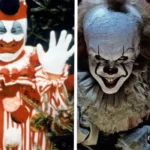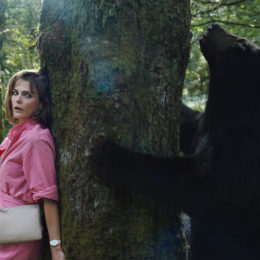You may not like Ezra, but you will like THE FLASH [REVIEW]
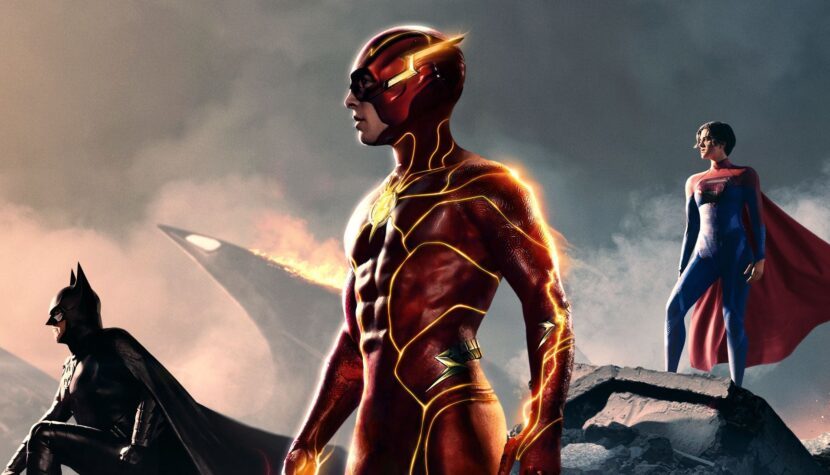
It’s a superhero film with no antagonist to overcome – the most important challenge Barry faces is coming to terms with his own pain.
Superhero Back to the Future
The starting point is trivially simple. Barry discovers that not only is he the fastest of all superheroes, The Flash, he can also go back in time. Without thinking, he tries to save his mother from death at the hands of a burglar, i.e. prevent the tragedy that overshadowed his childhood and led to the conviction of his father. Traveling through time, Barry creates an alternate reality in which his mother lives, but he does not foresee one thing – in this world there is no place for him, because he is already in it. Barry meets another Barry, younger and happier, not marked by trauma. Despite his initial reluctance, he will have to learn how to work with his alter ego, because danger is coming from space… The creators consciously refer to Back to the Future and propose cinema in a very similar spirit. Adventurous, youthful, giving pure fun, having the atmosphere of New Adventure, and at the same time – smart and at times touching.
The Flash is a very good film in its class – but also a very unfortunate one. It enters the cinemas after several years of shifts, turmoil, production problems. It is also unlucky due to the extremely unfortunate release date: it debuts shortly after the excellent products provided by its direct competitors – Guardians of the Galaxy: Volume 3 and Spider-Man: Across the Multiverse. In such good company, Flash will have a harder time staying in the viewer’s memory and may be lost in the end-of-year summaries. Flash also appears at a time when the topic of the multiverse it touches upon has already been reworked in various ways in at least a few other high-profile titles from recent years and months, and thus loses the freshness it would have had if the production had been completed as originally intended. Finally: he is unlucky because of Ezra Miller.
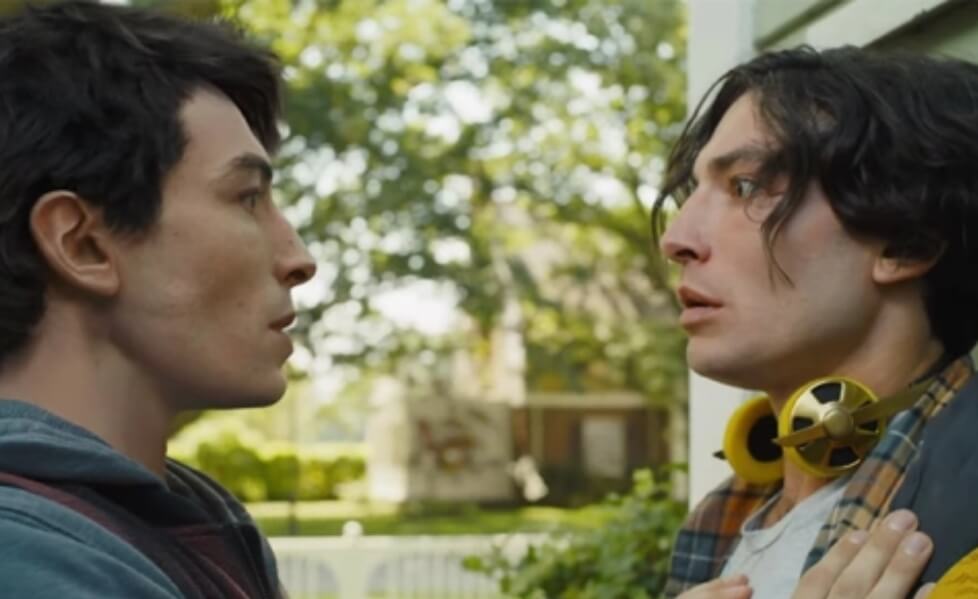
Related:
Ezra Miller in a double role
I must admit – with all the knowledge that this will be difficult for many people to accept – that I cannot agree with canceling Ezra. There is no question that they have done a lot of wrong and should answer for his actions. But it is equally obvious that we are dealing with a person struggling with a serious mental crisis. All descriptions of Miller’s antics and behavior clearly indicate that, to put it mildly, they are not in the best shape. The actor now needs treatment, therapy, rehab, support and, above all, peace, not the judgment of outsiders and public lynching.
The situation with Ezra is even more sad for The Flash because he simply played great, shutting the mouths of all those who said that he did not fit the role. There’s a lot to say about Miller, but it’s certainly not that he’s a bad actor. The Flash gave him much more room to show off than the actors usually offer in superhero movies – he had to create two versions of Barry from two alternate realities, after all. And he does it flawlessly: in common scenes we have no doubt which Barry is which. They both have their own personalities, mannerisms, speech and facial expressions. Both of them are also extremely likeable, which gives The Flash the atmosphere of a buddy movie and all the scenes with the Barry are wonderfully easy to watch. For the needs of the film, Ezra created de facto two separate roles, he delivered not only in moments that require a comedic sense, but also in the saddest ones, in which we are supposed to sympathize with the main character.

A fairy tale about growing up
Where Marvel with Endgame (2019) offered a naive fantasy that even something as irreversible as death can be undone with almost no consequences and everyone “goes great again”, DC with Flash slows down, introduces reflection and a message that it is much more valuable to normal viewers who don’t have the Infinity Stones. It’s a film about coming to terms with a difficult past; about accepting that not everything in life is perfect and neither are we. It is a story about a man shaped by difficult events who begins to understand that it is thanks to that suffering that he is who he is today. Finally, it’s a superhero movie with no antagonist to overcome – the most important challenge Barry faces is coming to terms with his own pain and ending a long period of mourning for his beloved mother. Like in a traditional fairy tale, The Flash is just such a metaphorical, fanciful story about the hero’s inner journey and his growing up.
About 2/3 of the movie loses its pace and becomes less engaging. The entire sequence of the final clash and preparations for it are probably the weakest elements of The Flash. However, it may be so (SPOILERS), we are dealing with a reality that is falling apart, is somehow flawed, created only by playing with the main character’s time – no matter what he does, this world will not survive anyway (END OF SPOILERS) . This somewhat dragging, clearly less well-executed than the rest (also in the technical layer) battle episode, however, makes up for the ending, which comes later. In short, and without giving too much away: we are dealing with a very moving farewell scene.
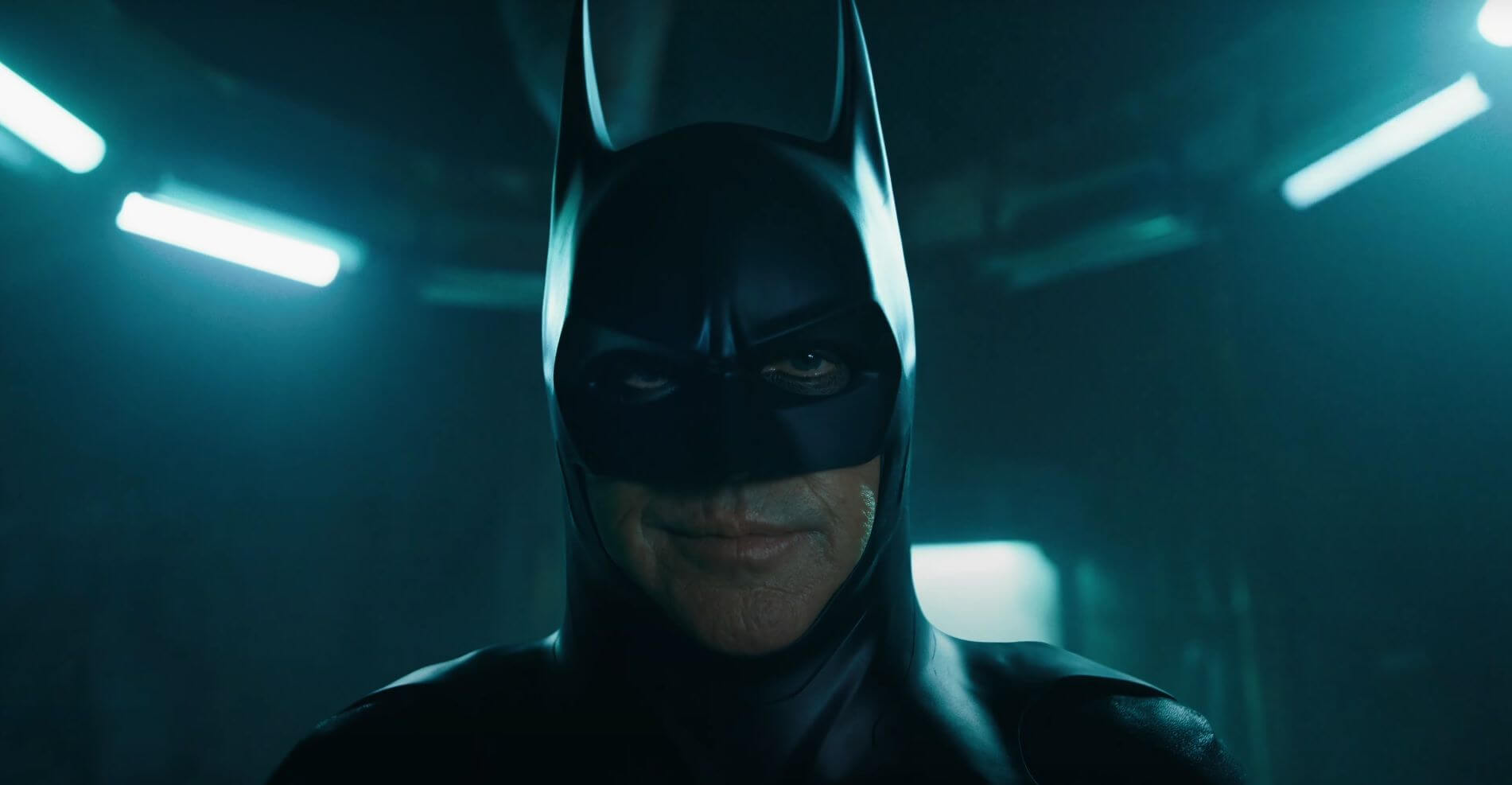
Humor and rips
As for the action scenes, the sequence with the burning building at the beginning of the film is by far the best, while the animation of Flash’s super-fast run is the best sensation of momentum that the cinema has provided me so far. yes, the CGI could have been better in places, but what always hits the spot is the sense of humor of the creators. Director Andy Muschietti has already proven in the horror It (2017) that apart from scaring, he has a sense for unusual, grotesque, black comedy. In Flash, he had more scope to make the viewer laugh. His film is genuinely funny where it’s supposed to be, for example when it uses the main character’s clumsiness for comic effect and serves a second-hand embarrassment in the style of The Office (Iris’s visit to Barry’s apartment), uses cut dialogues and conflicts of characters (duo Barry-Barry), he is also not afraid to be slightly absurd and “edgy” (a great scene with babies that everyone will remember long after the screening).
It’s finally a sentimental journey for all those who love the old Batman with Michael Keaton. The Flash gave both the actor and the audience a proper closure for this iconic role. Even I, who wasn’t raised on Burton’s movies at all, got a little emotional. My heart, however, was stolen by the second Batman (because there are several Batmans in this multiverse story), i.e. Ben Affleck, who shows a large dose of self-irony in the role referring to the reception of his interpretation of Bruce Wayne. This is my favorite background show.
The future of DCU looks bright. James Gunn recently proved himself to be in an upward artistic form and parted ways with Disney (not without the legitimate tease and criticism of the studio contained in his farewell film) to take over the helm of the competition. Let’s hope that the result of this cooperation will be productions at least as successful as The Flash and Guardians of the Galaxy: Volume 3.




